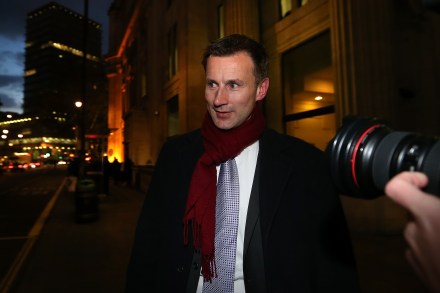In PMQs, Cameron has no answers on Hunt
Ed Miliband led on the economy at PMQs. But he was only warming himself up for the main event. Leveson dominated proceedings. David Cameron lamented the ‘disappointing’ news that the country has slipped back into negative growth. ‘It’s all bluster,’ crowed Miliband. ‘His plan has failed.’ This recession was made in Downing Street, he said, by an ‘arrogant Prime Minister and his Chancellor’. It was potent, punchy stuff from the Labour leader. And he was helped by Ed Balls who has clearly been ordered to clam up during PMQs. Instead of wriggling and calling out names, Balls sat there motionless and mute. His stony glare added to the pressure on













